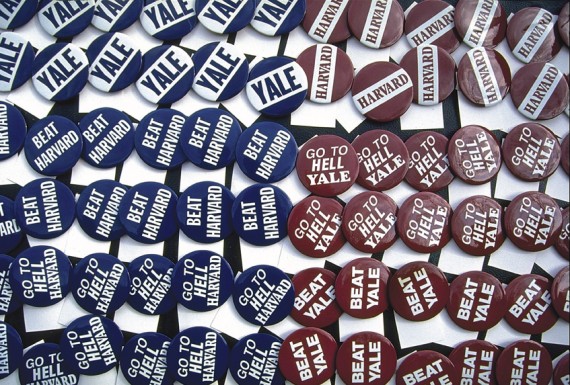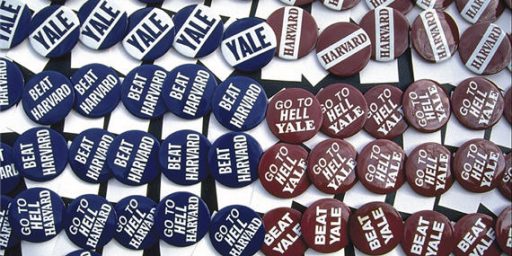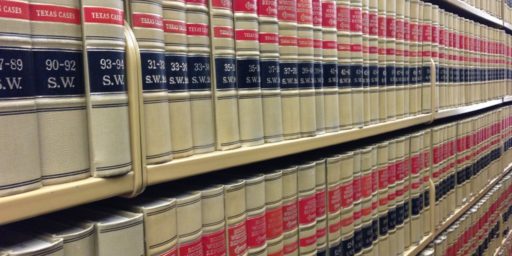Are The Ivies Too Small?
America's elite universities have proportionately fewer slots than their English and French counterparts. Does it matter?
John Quiggin was surprised to learn that “most of the Ivy League universities only have around 5000 undergraduate students” and the combined enrollment of all America’s elite institutions is well short of 100,000.” This is startling because:
- That compares to a college-age cohort of around 15 million and total enrolments of around 6 million. So, to the extent that a large range of high-prestige jobs (eg Supreme Court justice) are reserved for, or dominated by, graduates of the top colleges, around 99 per cent of the population have missed out by the age of 18.
- Relative to population, this is a finer filter than Oxbridge or the Grandes Ecoles (around 25,000 places for countries with total population of about 60 million).
He wonders about how this affects income inequality and social mobility and gets some interesting discussion on these points in the comments, mostly to the extent that exclusion from the top schools isn’t nearly the same barrier to success in the United States as it is in the UK and France. And I think that’s right.
Quiggin is doubtless right that there are a handful of spots where an Ivy League or equivalent undergraduate education is a virtual necessity. He identifies the most obvious: A Supreme Court clerkship. And, considering that most sitting Justices were once clerks — and all of them went to Harvard, Yale, or Princeton — it does effectively close out most of our brightest minds at a ridiculously early age.
But an elite education isn’t a requirement for getting elected to the White House, Congress, or the governor’s mansion. It’s true that our most recent presidents — Bush 41, Clinton, Bush 43, and Obama — are Ivy Leaguers But their immediate predecessors — Johnson, Nixon, Ford, Carter, and Reagan — weren’t. And Clinton was a Georgetown undergrad.
Quiggin’s tangential point, that the number of slots at the elite schools hasn’t kept pace with population growth, is interesting. But, as some of Quiggin’s commenters note, the delineation of American schools is far less clear-cut than it once was. Several private schools (Chicago, Stanford, NYU, MIT) and even a few state institutions (Berkeley, UVA) confer as much prestige on their graduates as the lesser Ivies. Indeed, plenty of people who get admitted to even the Harvards and Yales go elsewhere for a variety of reasons; I’m guessing that happens less with “Oxbridge” (i.e., the colleges of Oxford and Cambridge Universities) and the French Ecoles.
It may nonetheless be the case that, given the intense competition among parents of the upper middle class to get their kids into the “right” schools — which can start as ridiculously early as getting them into the “right” pre-schools — the schools might want to expand their enrollment somewhat. Presumably, Harvard could confer its credentials on 1500 students a year as easily as 1250 without any noticeable decline in the quality of the bottom students.







Our system of higher education and that of the United Kingdom, France, or Germany are sufficiently different it’s hard to make any sort of comparisons. We have many, many more colleges and universities per 100,000 population than any other OECD country.
I’m skeptical that we need larger Harvard, Yale, or Princeton classes. I think we need better HRM managers. Does out-sourcing your hiring to the Harvard Admissions Department really make sense?
No doubt. My solution has the merit of being possible, however.
I’ve watched a couple of Shiller’s lectures … I don’t suppose I count.
http://oyc.yale.edu/economics/financial-markets/content/sessions.html
#include “reinventing_higher_education_with_technology.html”
Quiggin is doubtless right that there are a handful of spots where an Ivy League or equivalent undergraduate education is a virtual necessity. He identifies the most obvious: A Supreme Court clerkship. And, considering that most sitting Justices were once clerks — and all of them went to Harvard, Yale, or Princeton — it does effectively close out most of our brightest minds at a ridiculously early age.
and
It may nonetheless be the case that, given the intense competition among parents of the upper middle class to get their kids into the “right” schools — which can start as ridiculously early as getting them into the “right” pre-schools — the schools might want to expand their enrollment somewhat. Presumably, Harvard could confer its credentials on 1500 students a year as easily as 1250 without any noticeable decline in the quality of the bottom students.
Hey James, here’s an idea, how’s about we attack the problem at it’s source? Say, get the sitting Supreme Court justices to look beyond their own little circle?
And for those who say it can’t or won’t work, I have 3 little letters for you: N…. F….. L.
People have to understand that the real purpose of the Ivies and the Ivy likes is to give people a good chance of succeeding in log-normal career fields such as law, academics, investment banking. Of course, people have to understand what a log-normal distribution is and have to understand that some career fields are structured to have a few very high paid individuals or a few very influential individuals and many failures (a few law students get hired by big law firms but over 50% of law school graduates never work in the legal field. This is the opposite of normally career fields such as nurses, dentist, physicians, where a Harvard educated dentist is not reimbursed any more than any other dentist.
Since the long-normal career fields are already overcrowded so adding more Ivy leaguers is a waste of time. If the Ivy leaguers doubled to 200K would not increased the number of jobs in journalism, Big Law, consulting. It would just make them harder to get.
My guess is that in France of England that many of the top university students end up in normally distributed career fields (such as civil servants) that the Ivy leaguers just do not produce.
If the number of students are the Ivy leaguers are doubled, then the value of a degree at Rice, Vanderbilt, Duke, Tulane, Emory will lose value. It truly is a zero sum.